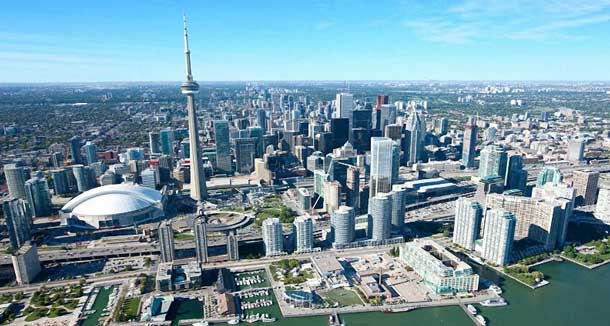
Canadian Real Estate Market Stable
TORONTO – Thunder Bay real estate is bucking the Ontario trend. Weaker demand in the Canadian housing market in the past few months has also slowed price growth in the new home market. The current outlook forecasts new home prices will rise by 1.8 per cent this year and 2 per cent in 2014. This is down from the 2.1 per cent and 2.5 per cent increases anticipated six months ago.
The trend in Thunder Bay is different from the rest of Ontario. Prices in the local market for residential property is climbing. Retail and commercial office space rental rates have been falling, and that should have a short-term impact on the business market.
Meanwhile, however across Canada, resale prices have been stronger so far in 2013. Existing home prices are now expected to increase 3.1 per cent this year, up from the 0.9 per cent increase expected in the previous outlook. Resale price growth will be more moderate next year, however, at 1.7 per cent, down from the 3.3 per cent forecast previously.
Housing Starts Have Stabilized
While housing starts have slowed since their burst from 2010 to 2012, there is still room for future growth and the Canadian residential market remains solid, according to the Conference Board ofCanada Autumn Metropolitan Housing Outlook commissioned by Genworth Canada (the report). The report notes that this stability is due in part to housing supply continuing to be in line with demographic requirements, which will allow average new and resale prices to continue to grow, albeit moderately, in the foreseeable future.
“The housing market has transitioned back to a more sustainable pace and data suggests that it will remain stable,” said Brian Hurley, Chairman and CEO of Genworth Canada. “This means a healthy market with reasonable growth, which will enable Canadians to have more confidence in both home ownership and its relative affordability.”
Continued Economic Recovery
The report confirms Canada’s continuing economic recovery, with GDP and employment both forecast to grow in all regions across the country over this year and next. While the Conference Board predicts mortgage rates to rise gradually, employment and personal income gains should allow consumers to adapt to the anticipated increases. The report also notes that while new home mortgage approvals grew in 2012, the total number of new and resale mortgage approvals is expected to be lower in 2013 by 2.3 per cent. However, even though new home mortgage approvals are expected to continue to decline in 2014 because of only modest growth in the new home market, resale mortgage approvals are expected to rise again in 2014 by 2.9 per cent. As a result of growth in prices for new and existing homes, the dollar volume of mortgage approvals is also expected to rise through 2014 in both the high-ratio and conventional markets.
“In short, Canadian housing markets should land softly,” said Robin Wiebe, senior economist, Centre for Municipal Studies at The Conference Board of Canada. “A crash would require a significant negative surprise like an interest rate spike or employment collapse. Since no such shock is in the cards in Canada, a housing crash like the one in the U.S. is nowhere near a possibility.”
Regional Highlights
- Atlantic Canada is expected to see a sharp drop in housing construction, but with the exception of a slight decline in existing home prices in 2013, new and existing home prices should enjoy consistent growth over the next several years
- Quebec housing starts should continue to decline, after reaching a peak in 2010, in order to better match demographic requirements
- Ontario housing starts are expected to fall in 2013 for the first time in four years, but are forecast to recover in 2014 before increasing much more significantly through 2015 and 2016
- The Prairies are expected to continue to enjoy healthy population growth, which will help sustain housing demand and allow housing starts to stay high
- Despite the negative impacts from the floods in southern Alberta this past Summer, the province will exceed the national average for both GDP and population growth this year, keeping housing demand and price growth high in the region
- British Columbia appears to be reaching the end of its pricing correction and housing starts will stop declining and post moderate and sustainable growth beginning in 2014.
Metropolitan Resale Price Highlights
Average Resale Housing Price by City: Forecast
| City | 2013f | 2014f | 2015f |
| Québec City | $267,821 4.5 |
$274,743 2.6 |
$281,566 2.5 |
| Montréal | $323,253 1.6 |
$331,303 2.5 |
$340,986 2.9 |
| Toronto | $533,035 2.4 |
$543,456 2.0 |
$554,737 2.1 |
| Ottawa | $333,746 1.4 |
$339,771 1.8 |
$346,665 2.0 |
| Winnipeg | $263,529 3.3 |
$273,446 3.8 |
$285,115 4.3 |
| Calgary | $431,760 4.7 |
$451,798 4.6 |
$473,470 4.8 |
| Edmonton | $346,581 3.7 |
$362,609 4.6 |
$378,281 4.3 |
| Vancouver | $737,162 1.0 |
$750,861 1.9 |
$769,468 2.5 |
| Victoria | $486,225 0.4 |
$492,802 1.4 |
$502,600 2.0 |
| Italics indicate percentage change from previous year. Sources: The Conference Board of Canada; Canadian Real Estate Association; Québec Federation of Real Estate Boards. |
Resale prices have been stronger than previously anticipated in Canada this year, with the national average price expected to increase 3.1 per cent in 2013 up from the anticipated 0.9 per cent rise in the previous Housing Outlook released in the spring. Prices for existing homes are expected to rise each of the next three years in all nine cities covered in the report. The most notable change is the end to Vancouver’s market correction.
Vancouver Remains Most Expensive Market
According to the Conference Board of Canada, Vancouver sales of existing homes rose sharply at the end of the second quarter of 2013 and exceeded their year-earlier volume for the first time since the third quarter of 2011. Vancouver will remain the most expensive city, with the average resale house price forecast to reach $769,468 by 2015, an increase of more than 4.4 per cent from 2013. Once again, Calgary is expected to see the largest increase in housing prices in percentage terms between 2013 and 2015, with Edmonton and Winnipeg close behind. The rest of the metropolitan areas will experience more moderate growth, in line with the national average.














